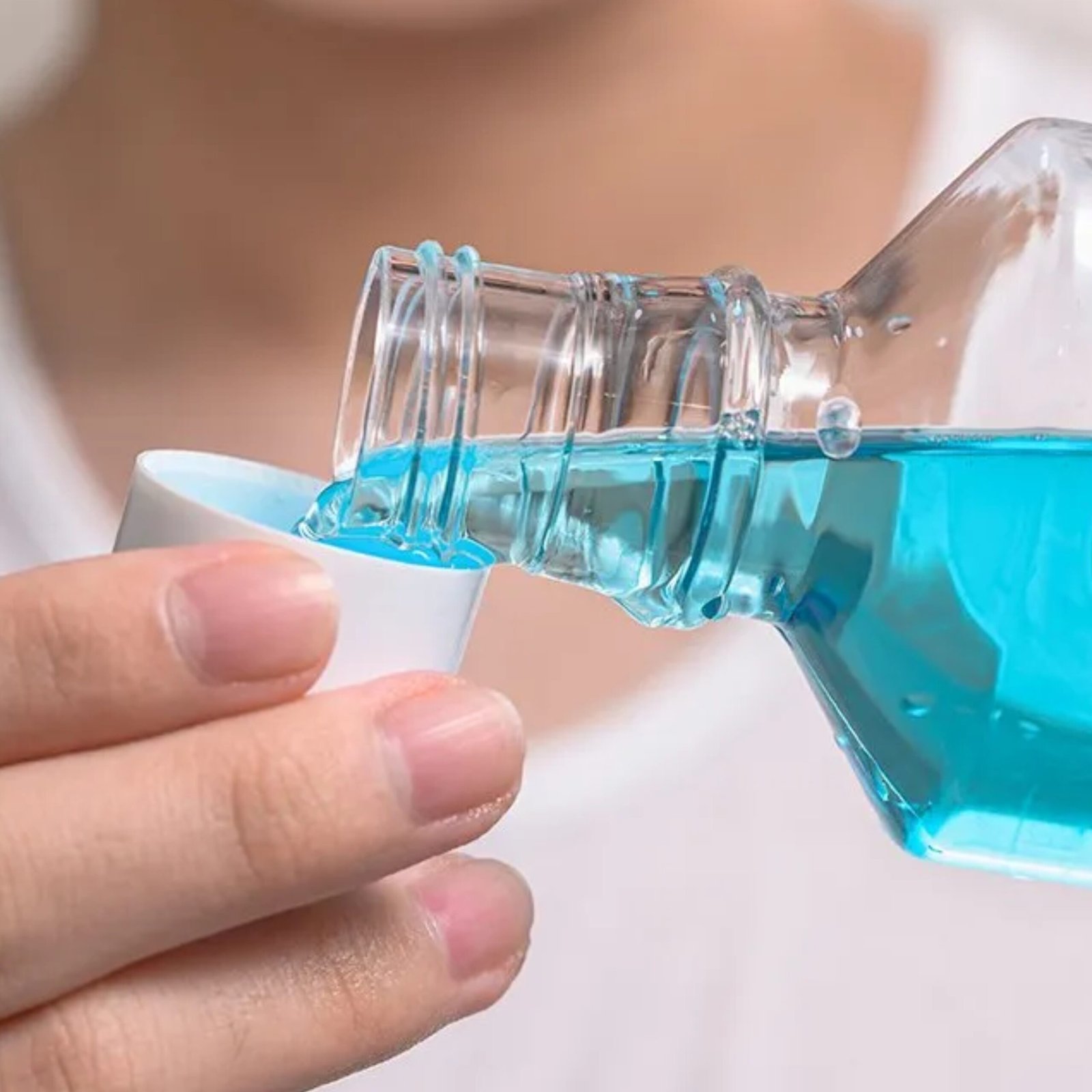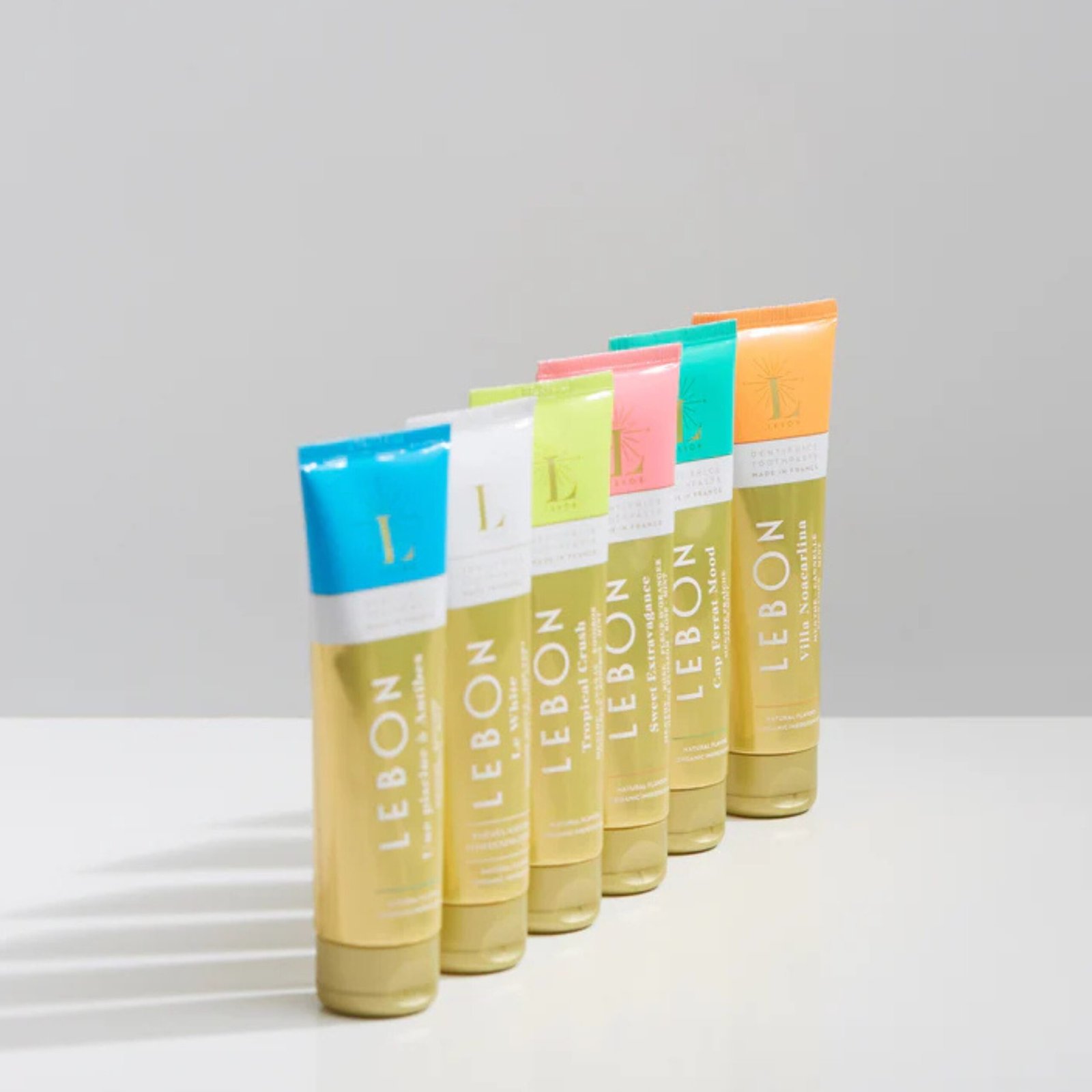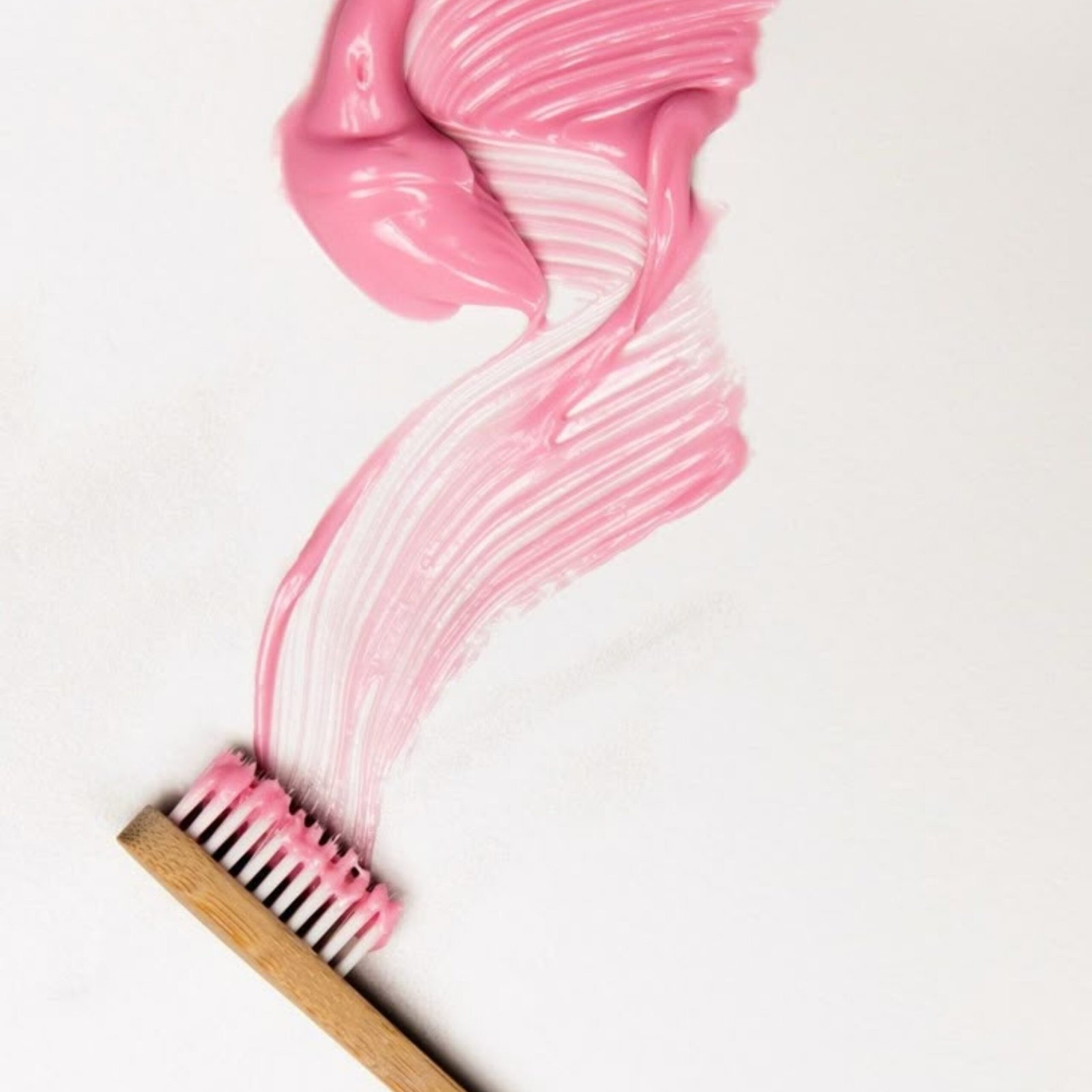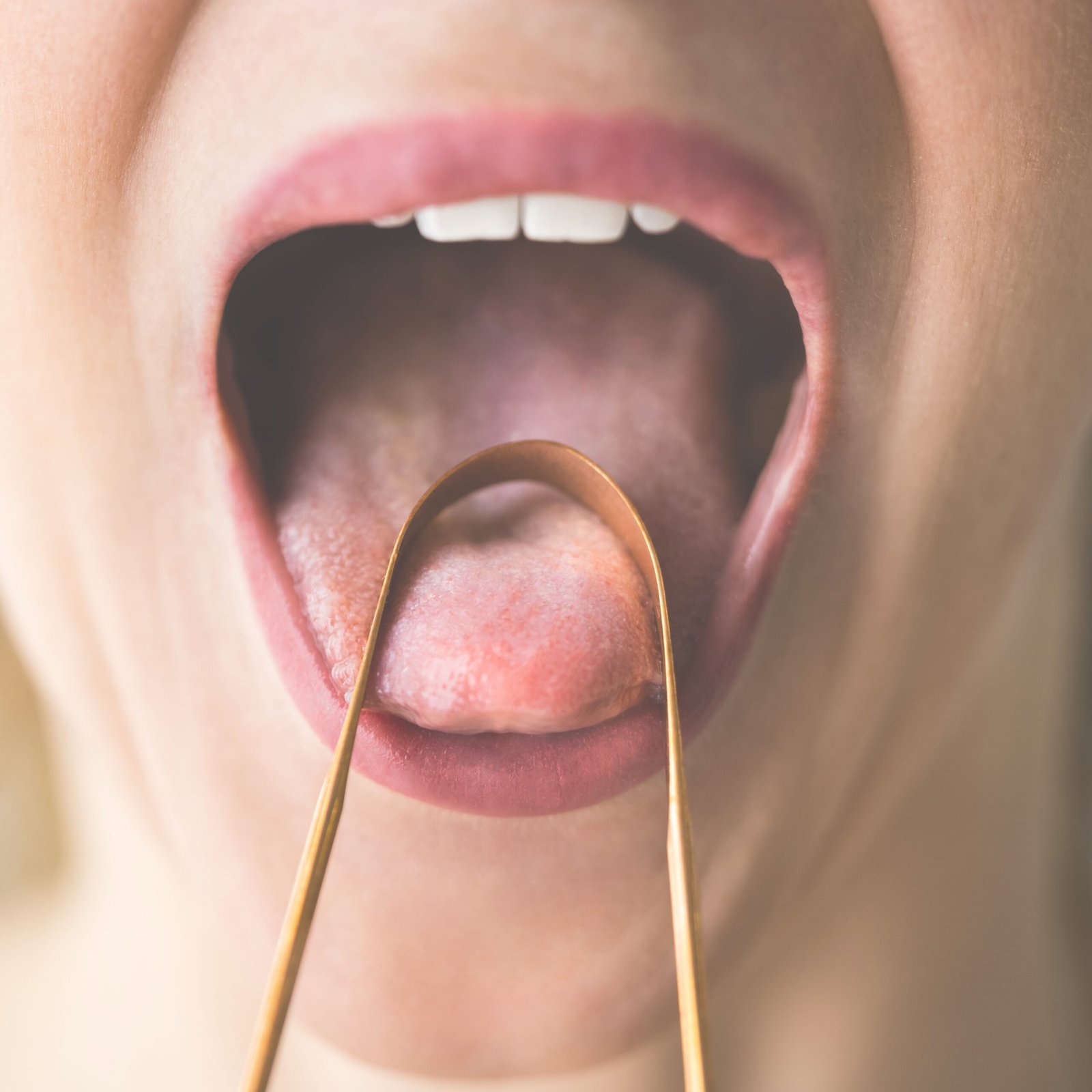You might be brushing your way into trouble. Most of us were taught that brushing, flossing, and rinsing are the gold standards of oral hygiene. But if that were the case, why are dental problems like cavities, gum disease, and sensitivity more widespread than ever before?
For centuries, humans had strong, healthy teeth without fluoride toothpaste, antibacterial mouthwash, or fancy toothbrushes. Fossil records show that our ancestors rarely suffered from cavities or gum disease. Yet today, despite shelves full of modern dental products, oral health continues to decline. The reason? It’s not just how we clean our teeth—it’s what we’re putting in our mouths.
Many popular oral care products contain harsh chemicals that disrupt the delicate balance of bacteria in your mouth. Alcohol-based mouthwashes, synthetic antibacterial agents, and foaming agents like Sodium Lauryl Sulfate (SLS) don’t just kill harmful bacteria; they also destroy the beneficial microbes that help keep your teeth and gums healthy. This microbial imbalance weakens your mouth’s natural defenses, making it easier for inflammation, cavities, and systemic health problems to take hold. Instead of eliminating all bacteria, a smarter approach supports the good ones while keeping the harmful ones in check.
The Hidden Link Between Oral Health and Your Body
Your mouth is the gateway to your body. Poor oral hygiene has been linked to heart disease, diabetes, pregnancy complications, and even Alzheimer’s. The bacteria in your mouth don’t just stay put—they can enter your bloodstream and trigger inflammation throughout your body. Studies have shown that gum disease increases the risk of heart attacks and strokes, while pregnant women with periodontitis are more likely to deliver prematurely or have low birth weight babies.
People with diabetes are especially at risk. High blood sugar impairs the body’s ability to fight infections, which worsens gum disease. And that gum disease, in turn, makes it harder to control blood sugar—a vicious cycle. These connections make it clear that oral health isn’t just about teeth—it’s about total well-being.
Are Traditional Oral Care Products Part of the Problem?
The ingredients in many common products may be doing more harm than good. Alcohol-based mouthwashes, for example, kill bacteria indiscriminately. While they might give you a clean, minty feeling, they also eliminate the beneficial microbes that maintain balance in your mouth. The same goes for strong antibacterial agents added to toothpaste and rinses—they compromise the body’s natural ability to defend itself. SLS, a foaming agent, is known to irritate the mouth and has been linked to the development of canker sores.
More concerning is the long-term effect of these chemical disruptions. A healthy oral microbiome isn’t just a trend—it’s a biological necessity. A study published in Microorganisms in 2024 confirmed that individuals with a well-balanced oral microbiome are significantly more resistant to tooth decay, gum disease, and even systemic illnesses than those with a depleted population of beneficial bacteria.
The Truth About Toothpaste
Fluoride, long recommended for cavity prevention, is now being reconsidered. Excess fluoride exposure has been linked to dental fluorosis—white spots or staining on the teeth—and may have neurotoxic effects. A study in JAMA Pediatrics reported that prenatal fluoride exposure correlated with lower IQ in children. For those seeking a gentler alternative, hydroxyapatite toothpaste supports enamel remineralization without the risks of fluoride. This naturally occurring mineral is not only biocompatible but has been shown to be just as effective as fluoride in strengthening enamel and preventing cavities.
Titanium dioxide, used for whitening, has been banned as a food additive by the European Food Safety Authority due to concerns about DNA damage. Yet it remains in many toothpastes. Other problematic ingredients include triclosan (linked to hormone disruption) and artificial sweeteners like aspartame, which may alter the gut microbiome.
The Mouthwash-Nitric Oxide Connection
 Another hidden risk of mouthwash? It can interfere with the body’s ability to produce nitric oxide (NO), a compound vital for cardiovascular health. Certain oral bacteria—especially those living on the back of the tongue—convert dietary nitrates into nitrites, which then transform into nitric oxide. Alcohol-based mouthwashes wipe out these beneficial bacteria, impairing NO production and potentially increasing blood pressure.
Another hidden risk of mouthwash? It can interfere with the body’s ability to produce nitric oxide (NO), a compound vital for cardiovascular health. Certain oral bacteria—especially those living on the back of the tongue—convert dietary nitrates into nitrites, which then transform into nitric oxide. Alcohol-based mouthwashes wipe out these beneficial bacteria, impairing NO production and potentially increasing blood pressure.
The Overlooked Power of Tongue Scraping
Tongue scraping is a simple yet powerful tool for oral and systemic health. The tongue hosts a dense bacterial population, including nitrate-reducing bacteria that support nitric oxide production. By gently removing debris and harmful buildup from the tongue, you create a more favorable environment for these beneficial microbes.
Studies have shown that regular tongue scraping improves breath, reduces oral inflammation, and supports a healthier microbiome. An article cited in Frontiers suggests that tongue scraping may enrich nitrate-reducing bacteria, indirectly supporting cardiovascular health by promoting nitric oxide levels. Just be gentle—scraping too hard can cause irritation or microbial imbalance. Use a smooth-edged scraper and clean it between each pass.
The Hidden Dangers of Plastic Toothbrushes
Most toothbrushes are made from petroleum-based plastics that degrade over time, releasing microplastics into your mouth. These can be swallowed or absorbed, contributing to hormonal disruption and chronic inflammation. Many plastic toothbrushes also contain Bisphenol A (BPA), a known endocrine disruptor.
Switching to bamboo toothbrushes or recyclable heads reduces both chemical exposure and plastic waste. Bamboo is naturally antimicrobial and fully biodegradable—a safer choice for you and the planet.
Why Nutrition Still Reigns Supreme
You can brush and floss perfectly and still develop cavities if your diet is lacking. Strong teeth are built from the inside out. Calcium-rich foods like leafy greens, almonds, and dairy help fortify enamel. Vitamin D aids in calcium absorption, while vitamin C strengthens gums by supporting collagen production.
Phosphorus and magnesium also play a role in maintaining healthy teeth and bones. Avoiding processed sugar and acidic drinks can help prevent the erosion of enamel and keep the oral microbiome in balance. According to Maple Dental Health, a well-balanced, nutrient-dense diet is the foundation of healthy teeth and gums.
A Holistic Approach to Oral Health
True oral care goes beyond surface cleaning. It means protecting your body’s natural microbial defenses, being mindful of what you put in your mouth, and nourishing yourself with the right foods. By rethinking your oral care routine and switching to safer alternatives, you can strengthen your teeth, support your heart, and care for your whole body.
At Kungul, we believe in helping people make informed, non-toxic choices every day—starting with the smile in the mirror.

For those in Tirana looking to upgrade their routine, check out the natural oral care range at Ivory Skincare featuring the premium Lebon brand. They offer a stainless steel tongue scraper, bamboo toothbrushes, and toothpaste formulated with hydroxyapatite by Lebon, approved by Kungul with a safety score of 8 out of 10—perfect companions for a clean, safe, and effective oral health ritual.





